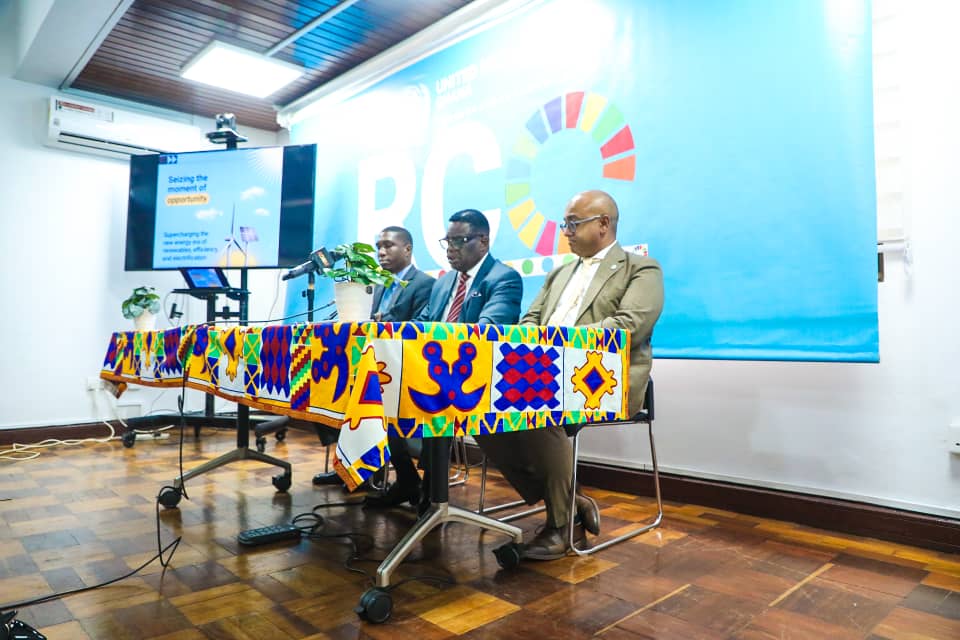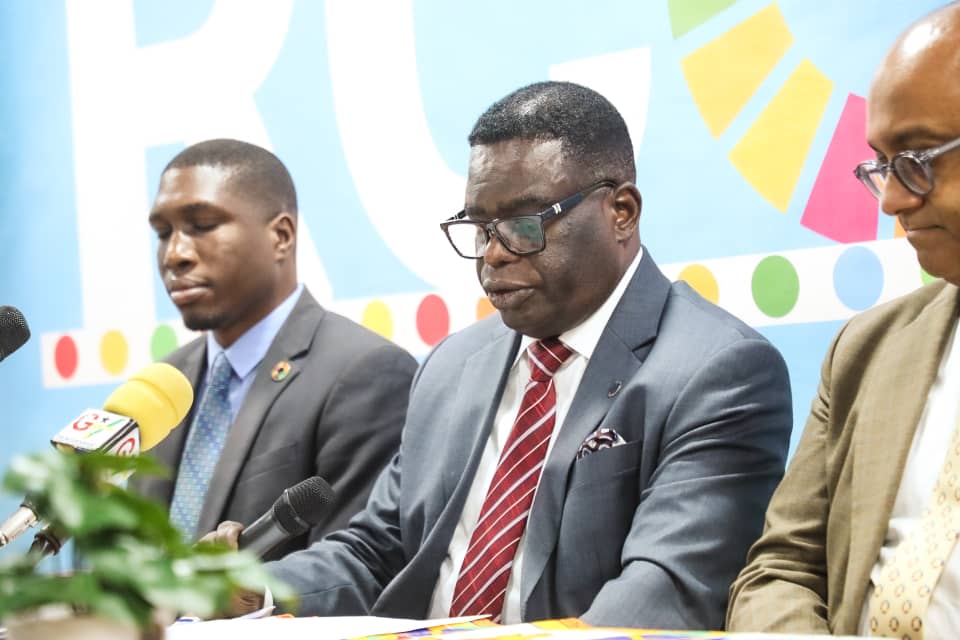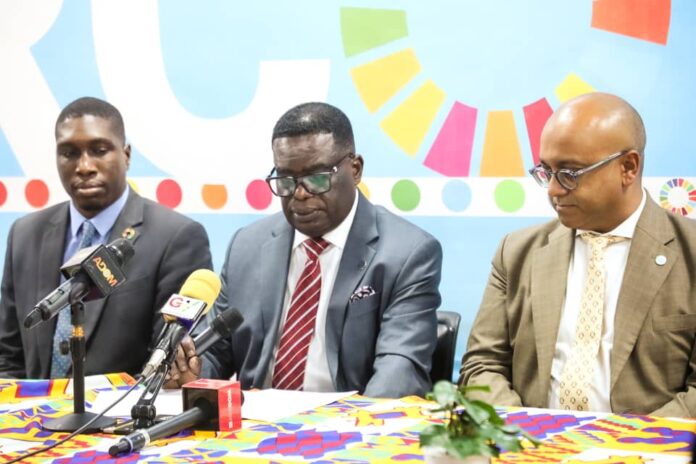The United Nations Information Centre (UNIC), in collaboration with the UN Global Compact Network Ghana, has held a special media engagement on climate issues.
The event was held at the UNIC office in Accra on Wednesday, July 23, 2025.

The session focused on the UN Secretary-General’s special climate address on the theme, A moment of opportunity; supercharging the new energy era and Ghana’s selection as the pioneer country for the Ocean Centres Initiative.
In a speech read on his behalf, the UN Secretary-General António Guterres declared that the world has “passed the point of no return” in the transition to renewable energy.
He urged governments to develop new climate action plans before November’s COP30 climate summit in Brazil, asserting that the fossil fuel era is nearing its end.
Mr. Guterres highlighted the significant rise in clean energy investments, noting that solar and wind costs have dropped to levels that now outcompete fossil fuels.
“The energy transition is unstoppable, but the pace is not fast enough or equitable,” he stated.
Guterres pointed out that $2 trillion was invested in clean energy last year—$800 billion more than fossil fuels—and that this figure has risen nearly 70 percent over the last decade.
He called for countries to strengthen their Nationally Determined Contributions (NDCs), emphasizing the need for G20 nations, responsible for 80 percent of emissions, to align with the 1.5°C climate target.
The UN Secretary-General highlighted that targets must include doubling energy efficiency and tripling renewable capacity by 2030.
Touching on the geopolitical risks of fossil fuel reliance, he noted that “The greatest threat to energy security today is fossil fuels,” referencing price volatility from Russia’s invasion of Ukraine. In contrast, he stated, “There are no price spikes for sunlight or embargoes on wind.”
He identified six key opportunity areas for acceleration: ambitious NDCs, modern grids, sustainable demand management, a just transition for affected workers, trade reforms for clean technology, and mobilizing finance for emerging markets.
However, he stressed that financing remains a critical barrier, with Africa, holding 60 percent of the world’s best solar resources, receiving only 2 percent of global clean energy investments.
Guterres called for reforms in global finance and stronger multilateral development banks. “The fossil fuel age is failing, and we are at the dawn of a new energy era,” he concluded. “This world is within reach, but it requires our active participation. This is our moment of opportunity.”
For his part, the Country Lead for Ocean Centre Initiative, Emmanuel Kofi Mbia, added that the initiative is dedicated to the principles of sustainable ocean management while harnessing Ghana’s coastline to foster economic development.
It aims to enhance maritime safety, mitigate accidents, and cultivate a preventative culture within the country’s shipping and ports, fishing and aquaculture, finance and investment, and offshore renewable energy sectors.
Mr. Mbia affirmed Ghana’s commitment to prioritizing sustainable ocean management, strengthening strategic partnerships, and investing in research and technology to support these objectives.

The report on supercharging the new energy era of renewables, efficiency, and electrification laid out six key areas of action for accelerating the transition; including
Provide policy coherence, clarity, and certainty—the government should align policies, incentives, and resources to accelerate the just energy transition.
Invest in enabling infrastructure for the 21st-century energy system.
Meet new electricity demand with renewables, especially for rapidly growing sectors like Big Tech, in particular for Artificial Intelligence (AI) and data centers.
Place people and equity at the heart of the just energy transition to drive inclusive economy development.
Supercharge the transition by increasing cooperation on trade and investment.
Dismantle structural barriers to mobilize energy-transition finance for developing countries.
Source : Joseph Odotei



